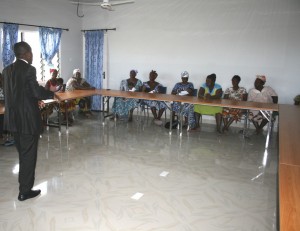Changing Lives of Women and Youth in Our Community
This year we have been excited to continue moving forward with our various livelihoods programmes! More women and youth have been coming to Challenging Heights in order to become members of the various projects. With the addition of 2 new staff members devoted to the livelihoods projects we have been able to quickly move forward.
With various stipulations, three different areas of our empowerment projects can be joined including smoking fish, soap making and horticulture.
The fish projects are open strictly to women fishmongers who will be involved in the smoking of the fish and using the facilities to improve their fish business and receive micro-credit in which, over time, they will pay it back without interest.
In order for the women to be involved in the programme and receive the micro-credit they must a care-giver, have a bank account, attend various meetings, and promise to never traffic their children and enroll them in school. As the women have been registering for the programme we have held meetings with them to discuss the agreement of receiving micro-credit, child and human rights and about child trafficking to Lake Volta. After the women have received the micro-credit we will continue to meetings, follow-ups, and monitoring to see how they are advancing with their finances, their savings as well as issues and difficulties that they are facing.
Many youth have showed interest to take part in the soap training which has led us to open registration to not only women in the community but for youth, male and female. Although no micro-credit will be given we will offer training on marketing their product, opening a bank account, and various other business techniques. Those registered to the soap making training will be taught how to make bathing soap, dish soap and bar soap for both bathing and washing clothes. The training is scheduled to take place this month with 50 trainees.
The horticulture project will be further established in the coming months as we further establish the programme. Any youth interested in horticulture will have the opportunity to register for this project. We will be seeking restaurants, chop bars, supermarkets and market women who will be willing to buy the vegetables after they have been produced.
Those in the horticulture programme will also be given a seed capital as well as receive education on the benefits of vegetable cultivation and the best practices to produce the quality vegetables.We are very excited to see the direction this project is going and the great potential it has for the women and youth of the community.
